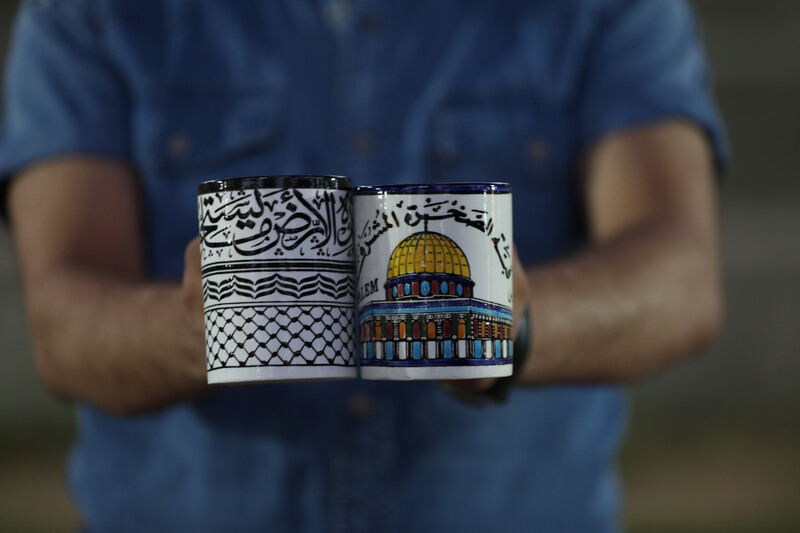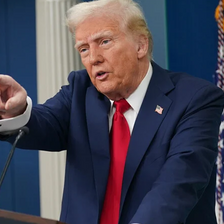The Electronic Intifada 27 June 2024

People attend a a workshop in Gaza City on August 10, 2023, entitled: “Our identity and heritage.”
APA imagesI am a Palestinian from Gaza, not a Gazan.
I identify as a Palestinian from Gaza, a coastal city with deep roots in historical Palestine.
It holds distinction as one of the world’s ancient cities. It transcends its reputation as solely a war zone; we neither depend solely on humanitarian aid nor seek pity.
The people of Gaza are educated, with numerous schools and universities enriching our community, currently, mostly bombed because of the ongoing Israeli genocide on Gaza.
Many Western media platforms describe people in Gaza as Gazans rather than Palestinians from Gaza. However, many residents of the Gaza Strip are not originally from there, so referring to them simply as Gazans is misleading.
Additionally, Israel doesn’t only occupy Gaza; it occupies all of Palestine. Using “Gazans” instead of “Palestinians from Gaza” can lead to political and social isolation, as it focuses solely on geography rather than broader identity, framing Gaza as a kind of walled-off no-man’s land.
Emphasizing “Palestinians from Gaza” underscores the connection to the broader struggle for self-determination, situating them within the larger Palestinian narrative and context.
Images of hungry children and homeless families flood social media, spotlighting numerous humanitarian tragedies.
However, it’s imperative to recall that these are all outcomes of Israeli occupation, for which Israel bears primary responsibility, while American-granted impunity perpetuates the suffering.
Solely framing Palestinians in Gaza through these images diminishes our cause to a mere humanitarian issue, neglecting its political dimensions.
Systemic oppression
The US administration always emphasizes the importance of providing humanitarian aid to Palestinians in Gaza, completely ignoring the fact that an immediate ceasefire and an Israeli withdrawal are essential.
What’s occurring in Palestine is a systemic oppression and dispossession of the Palestinian people from their land, resources, and rights.
With open border crossings, the humanitarian catastrophe would not escalate. It’s systematic and calculated, stripping events of their context to prolong the war for as long as possible.
The problem is that the media have indeed succeeded in promoting this image of Palestinians in Gaza. I discovered this when I left Gaza last year for the first time and met people from different communities. Upon their discovering that I was from Gaza, I found myself bombarded with questions.
The persistent questioning regarding whether individuals in Gaza partake in everyday activities such as shopping, education, exercise, or travel has grown tiresome and offensive. Despite the enduring siege and isolation, Gaza’s 2.3 million inhabitants manage to attend schools and universities, find employment, and sometimes travel when the Rafah crossing with Egypt becomes accessible.
In Egypt, it was immediately apparent to Egyptians that I was not Egyptian. Egyptian traders charged me tourist prices for goods. Despite my attempts to imitate their dialect, they always knew and welcomed me with a friendly, “welcome to Egypt.”
However, in Qatar, my Jordanian friends, who are originally Palestinian, continuously mocked my way of speaking. They claimed I spoke as fast as Egyptians and had similar facial features and sense of humor. They even went as far as to suggest that Gazans are originally Egyptians, a narrative I found puzzling.
While I have no issue with resembling or speaking like an Egyptian or having Egyptian origins, my great-grandparents are Palestinians from Dayr Sunayd. They used to celebrate the Festival of Nabi Rubin and spend their vacations in Jaffa, which was fancier than the city Gaza at that time, even if Gaza was closer. They never celebrated Sham Ennessim or visited Alexandria.
I would jokingly tell them, “you can’t be more Palestinian than me,” as my family was raised in Jabaliya camp, where the first Intifada erupted. As a young child, my dad lost his pocket money countless times while jumping and throwing rocks at Israeli occupation soldiers.
When a Lebanese professor learned that I was from Gaza, he jokingly said: “So you’re not from the ‘real Palestine’,” and laughed alone at his joke.
Why is Gaza considered not real? Why isn’t it considered Palestinian? I didn’t respond. I didn’t know what I should say when someone questions my identity.
Once, while delivering a presentation and being very excited about my topic, the only comment I received from my professor was that I didn’t speak like a Gazan. He said that I sounded like someone from Jerusalem.
I have never visited Jerusalem, and I have never heard someone from there speak. I wanted to tell him that in Gaza, there are many dialects. You can’t expect one dialect from over 2 million people, 70 percent of whom are refugees originally from different Palestinian cities and villages.
However, I refrained from saying anything because I was simply relieved my professor didn’t criticize my work.
Revealing encounters
I had an intriguing encounter with a girl from Nablus, a city my dad cherished from his university days. He often dreamed of revisiting, but Israeli restrictions make it impossible.
Surprisingly, her first question wasn’t about our shared Palestinian identity but whether Abu Obaida, the Hamas spokesperson, is a relative, a query I expected from an Israeli, not a fellow Palestinian. She expressed shock at the Israeli army’s use of bombings, rather than apprehension in Gaza. She had no idea that Palestinians from Gaza can’t visit the West Bank.
It felt odd. Despite our different geographical backgrounds — me from a coastal village, she from a mountainous city — we share a Palestinian heritage. It felt odd being questioned about traditional dishes in Gaza. Gaza isn’t an independent country; it’s part of Palestine. I don’t have to tell other Palestinians that, like them, I eat maqlouba or mujadara.
During the Doha Book Fair, where I worked one year, I had a conversation with a Sudanese customer who initially mistook me for Syrian. Upon learning I’m Palestinian from Gaza, he said, “No way, but you are well-educated and smart.”
Why did he assume Gazans aren’t smart?
It angered me further when he asked if there were any schools and universities in Gaza. It was no different from the time when an American was surprised to learn I was from Gaza and had Snapchat on my phone, as if downloading an app were a daunting task.
What broke my heart more was when I mentioned, “I really miss Gaza,” and a Syrian colleague responded, “What do you miss? Destruction? When Syrians express missing Damascus, there’s something tangible to yearn for. You don’t have that.”
These words weighed heavily on me, not only because they were inaccurate but also because they came from an Arab, not a Westerner.
To those misled by images of bombings: The aggression in Palestine extends beyond Gaza, and Gaza is not an autonomous region but rather a part of occupied Palestine.
These realities do not render me an outsider. The people of Gaza do not seek sympathy from the international community. Humanitarian aid is just one aspect of their needs. Gaza is home to numerous talented individuals and intellectuals.
Palestinians in Gaza simply seek to be treated as ordinary humans, deserving respect for demonstrating resilience in navigating daily life amid appalling adversity.
Genocide
It’s also not a Hamas-Israel war or conflict.
It’s an Israeli genocide practiced by the Israeli occupation against Palestinians in the Gaza Strip.
It was never about the hostages; that’s a pretext for continuing the ethnic cleansing that started in 1948.
The Palestinians in the West Bank don’t currently live their best days; Israeli soldiers have stormed the Jenin and Tulkarm camps tens of times, killing many there. They have erected more military checkpoints. Settler violence has significantly increased since 7 October, and settlement projects have expanded at frightening pace.
Israel never treats us as Gazans or West Bankers; Israel always treats us as Palestinians who only deserve to be killed, detained or expelled
And if the American-Israeli expulsion project succeeds in the Gaza Strip, it will be applied in the West Bank in the same manner.
Don’t tell me I am a Gazan. I am Palestinian from Gaza who lives under a constant Israeli threat against my existence, just as all Palestinians do.
Malak Hijazi is a Gaza-based writer.






Comments
Fantastic article! I visited
Permalink Despina Moutsouris replied on
Fantastic article! I visited Gaza in 2002. Palestinians in Gaza are some of the most hospitable, friendly, and steadfast people I have ever met in the world. Freedom to Gaza and all of Palestine.
Gazan is a subset of Palestinian
Permalink StevoR replied on
Different view or way of thinking about it :
Gazan is a subset of Palestinian just as Adelaidean is a sub-set of Australian, New Yorker is a sub-set of (United States of) American, as Londoner is a sub-set of British, Parisian a sub-set of French, Tokyoite & Okinawan are sub sets of Japanese, etc..
You can be both & it's fine. I'm not sure I see a problem here.
FWIW most of all you can be as 'Futurama' calls it an "Earthican" a human individual living on the pale blue dot we call Earth - even though it's mostly composed of rock & two-thirds covered by ocean water.
interesting
Permalink kronikdenny replied on
I've done that myself, in podcasts: referring to Palestinians, and Gazans, separately. but it never occured to me that i wasn't clarifying my description. Similar to my living just outside of Boston, Massachusetts, but i'm considered a " Bostonian " ...
thanks for clarifying this very important distinction.
Western press
Permalink M Laubscher replied on
As a South African I understand some of the misperceptions created by western media. Africa is referred to as if it is a small island some where with jungles, wild animals in the roads and starving children(who can forget the starving child with the vulture). If we are lucky, Mandela is remembered. We are painted as constantly needing aid, not countries recovering from colonisation, burdened by western debt, who sell commodities to western countries on their terms and wrecked by the weapons often manufactured in the West when dictators are needed to favour trade with European countries.
I was brainwashed (I refer to myself as a recovering racist) and now find joy in the diversity my country offers. Getting to know the other, unmanteling the unconscious superiority thinking fed to me as a child, is difficult work. I often fail. Peace and the immense joy of shared human commonality (we are great sport lovers as a country) drive most of my country(wo)men to keep trying. We know the horror of wars/bombs in public places/men doing years of military service as soldiers on both sides of the racist war struggeling and despairing for years after 1994.
Coming from such a place, I feel immense pride that South Africa has taken the lead in the judicial case to declare the slaughter of Palestinians in Gaza as genocide. I also feel heartbroken by the daily murders commited on Palestinians.
Thank you for speaking up. As onlookers we need the misconceptions created to be cleared so the positivity in humanity can triumph.